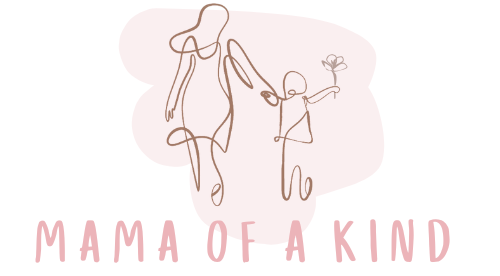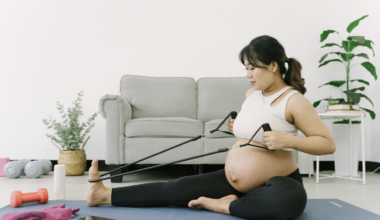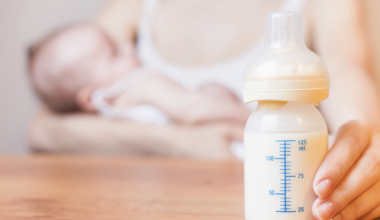Table of Contents
Have you ever felt like you needed an additional and professional person by your side, other than your partner, during your pregnancy and birthing journey? Someone who can be there on a much deeper level for both you and your partner?
Because, let’s face it, most partners feel like they’re useless when it comes to their significant others’ birthing experience or feel like they might need the support themselves.
If I were to tell you that someone can help your pregnancy and birthing experience be a more enjoyable and comfortable one, wouldn’t you be open to try it out?
What Is a Doula?

A Doula is a professional assistant or coach that is there to provide physical, emotional and informational support to a woman (and/or their partner) through natal journeys. In fact, there are different types of Doulas:1
- Birth Doula
- A birth Doula provides emotional, physical and informational support during your pregnancy, labor and postpartum journey.
- Postnatal Doula
- A postnatal Doula is there to support you in everything post-delivery. Whether you need help and support for newborn care or sibling support, a Doula will be there to assist you along the way and provide a more harmonious environment for all family members.
- Perinatal Mourning Doula
- A perinatal Doula is there to provide emotional support during the mourning process through validation and compassion.
- End of Pregnancy Doula
- An end of pregnancy Doula provides emotional, informational and physical support before, during and after a termination of a pregnancy. They offer methods to help women make informed decisions.
- Fertility Doula
- A fertility Doula (infertility or conception) provides support to women who are trying to conceive, regardless of which method of conception is used.
As you can see, there are different types of Doulas that provide various kinds of support for women that are going through their own unique journeys.
In this particular article, we’ll exclusively be referring to birth Doulas.
Doula Versus Midwife
Many mix these two up, but they’re not the same.
When you talk about hiring a Doula, some people automatically think that you’re having an at-home birth. But, that’s not the case.
A Midwife is a health care provider that can deliver a baby at the hospital, a birthing centre or even at your home, whereas a Doula is more of a birthing coach. Also, a Doula doesn’t have medical expertise like a midwife does.
Process of Hiring a Doula

Typically, women will start looking for a Doula in the beginning of their pregnancy. You can simply look on the Internet to find Doula services near you.
I would recommend “shopping around” a bit as one Doula isn’t the same as another and the services or packages that are being offered can be different.
It’s important to find a Doula that fits or matches your energy, your needs, and your beliefs and values. You can definitely interview a few to see which, out of your options, best suits your needs and the needs of your partner.
It’s suggested to ask for their experience during the interview process and if they’re part of some organization of some sort to see if they’re certified.
I would also recommend that your partner be involved, so that the Doula can determine the dynamics of your relationship and to see how best to help, especially during the birthing experience.
How Much Does It Cost to Hire a Birth Doula?
It depends. It depends on where you live, the Doula’s experience and which package you’re interested in.
It could range from $200-$2,000. They usually offer more comprehensive packages which include a variety of services, such as additional prenatal classes for example.
This might not be everywhere, but in some areas in Canada, Doula services are covered under some medical insurances; under “naturopathy”. They’re currently looking to have their services recognized as an insurable cost (as they should be).
What Will a Birth Doula Do for You?

This depends on what you’re looking for in a birth Doula. They can provide physical, emotional and informational support during your journey. A Doula is like a best friend assistant who will help you every step of the way, guide you, and to value your needs and preferences the whole way through.
Reassurance & Emotional Support
Some women might want a Doula to be by their side to support them with any anxieties they might have during their pregnancy or during birth; or need reassurance.
Advocate Your Needs During Labor
Other women might want someone to be there during their labor to advocate for them if ever they come across a situation where they’d have to make a rash decision or if maybe nurses or doctors aren’t being very flexible when they actually should or could be.
For example – this is seen a lot- where doctors or nurses push the idea of giving the epidural on women who would rather not take any form of medication during labor. A Doula would be there to advocate for her and be assertive with her requests when she’s in a most vulnerable position to even be able to speak for herself.
Physical Preparation & Tips
A birth Doula can also help prepare you physically for birth with some exercises and tips based on your values or preferences. For example, you might want to try inducing your labor naturally by trying some exercises that can help get the work started. Or, the Doula can show your partner some pain relieving pressure point massages to give you while you’re in labour.
Prenatal & Postnatal Preparation & Classes
Also, depending on which package you purchase, they can give you some form of prenatal classes for you and your partner. These classes can help you prepare for birth, such as “what to expect during birth or labor” or how to do a diaper change. The Doula might also, depending on if you’re breastfeeding, give you some groups to follow for breastfeeding support, etc.
Postpartum Check-Up
Lastly, a birth Doula is also there to help you postpartum, after a week or so, to check in on you and your new baby; to see how you both are doing and if you need any help or have any questions.
To Recap
A birth Doula is a knowledgeable coach or assistant that is available to support you emotionally, informationally, and physically, in every step of your pregnancy, birth, and postpartum journey. They’re there to provide you with reassurance and guidance; they’ll be that voice and decision-maker (based on your needs and values) when you’re the most vulnerable; they can assist your partner in supporting you; and they can provide you with good information in order to prepare you for what’s to come.
If you were to hire a birth Doula, what would you need them for? Please comment!
Sources:







